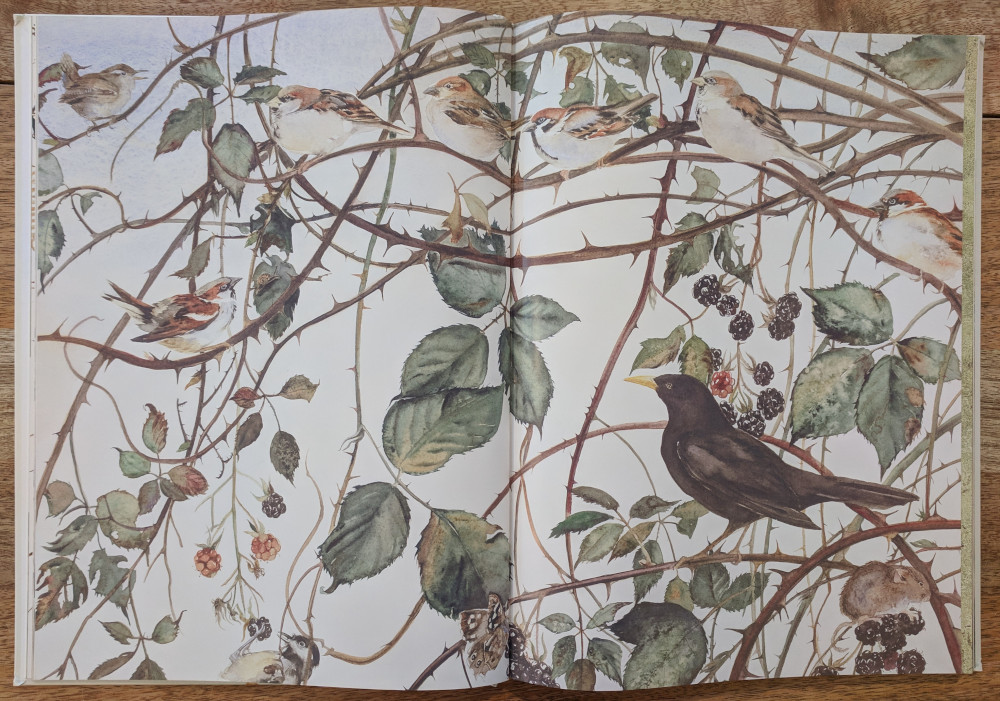The Lost Words
-
www.thelostwords.org/the-book
Online stores Amazon -
lostwords-1548640232889.jpg
Illustration of bramble, from The Lost Words.Credit: Jackie Morris. Fair use.Source: own photographReviews
Please sign in or register to add your own review.
Kindling a joyful connection with nature through art and poetryI’ll be honest with you: I rarely enjoy poetry; for the most part, it creates in me only the “feeling that I should be feeling something”. It’s a different story when poetry is set to song or to beautiful illustrations. Perhaps other readers create their own mental melodies when they read mere words; I require the assist.
With The Lost Words, Robert Macfarlane and Jackie Morris have created something even I can appreciate: a book that, through poetry and gorgeous art, invites a profound re-connection with nature.
The premise of the book is that words that refer to the natural world—words like “adder”, “conker”, “otter” and “wren”—are slowly disappearing from the language of children. And surely for many children growing up today, especially in urban environments, this is very true.
To restore these words—and the connection with nature they represent—to our lives, the book invites us to summon nature by reading out acrostic spells. Each poem is set alongside a beautiful full-page illustration showing the subject (e.g., a dandelion plant) in isolation; turn the page, and you’ll discover a two-page watercolor showing the subject again, now within nature. The spell for “bramble” begins as follows:
Bramble is on the march again,
Rolling and arching along the hedges
into parks on the city edges
All streets are suddenly thick with briar:
cars snarled fast, business over.
Moths have come in their millions,
drawn to the thorns. The air flutters.
…
This spell is then followed by an immersive illustration, making the most of the book’s large (27.7 cm x 37.6 cm) format:

Illustration of bramble, from The Lost Words. (Credit: Jackie Morris. Fair use.)The Lost Words is not a science book; it does not provide explanation or context. In the beauty of its spells and illustrations, it builds something arguably even more important: the emotional foundation for our interest in nature. We will fail to conserve what we do not care about.
There is no doubt that Morris and Macfarlane have created a masterpiece, a timeless work that can be enjoyed by all ages. It is a book of few words, and it invites meditative reflection more than reading. I expect to pick it up again when it’s too cold and rainy outside to take a walk, but I still long to kindle my memory of the beauty of the natural world.
